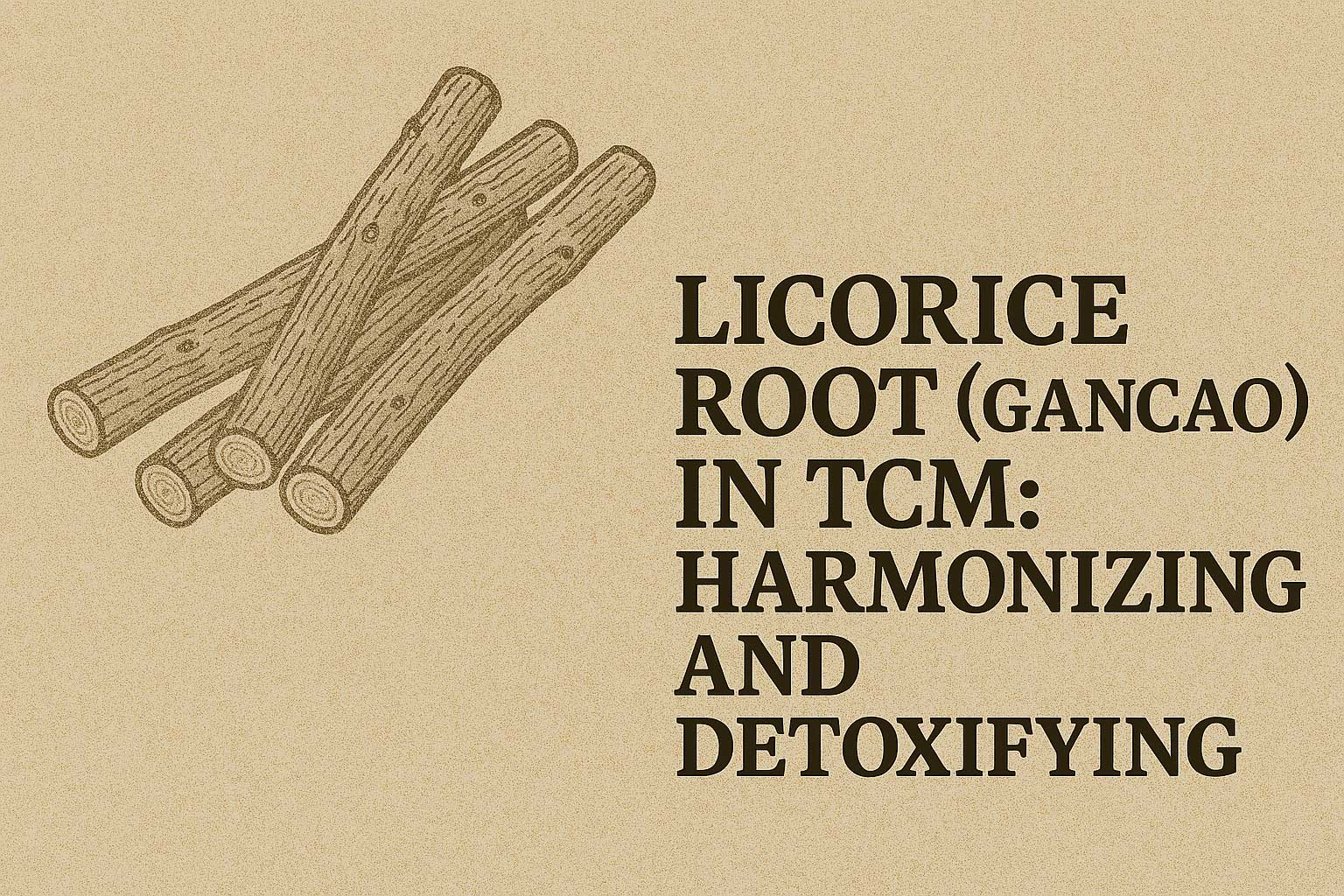Licorice root, known in Chinese as Gancao (甘草), is one of the most frequently used herbs in Traditional Chinese Medicine (TCM). Referred to as the “King of Herbs” or the “Great Harmonizer,” Gancao appears in more than half of all classical formulas — a testament to its versatility, safety, and harmonizing properties.
In this article, we’ll explore Gancao’s traditional uses, pharmacological properties, and modern research that supports its application.
🔶 Botanical Profile
- Scientific Name: Glycyrrhiza uralensis / Glycyrrhiza glabra
- Chinese Name: 甘草 (Gān Cǎo)
- Plant Family: Leguminosae (Fabaceae)
- Used Part: Root and rhizome
- Taste and Nature: Sweet in flavor, neutral to slightly warm in nature
- Channels Entered: Heart, Lung, Spleen, Stomach
🔶 Traditional Functions of Gancao
According to classical materia medica, Gancao has five key functions in TCM:
- Tonify the Spleen and Qi
- Treats fatigue, poor appetite, shortness of breath.
- Moisten the Lungs and Stop Cough
- Used in both hot and cold patterns of cough and sore throat.
- Clear Heat and Relieve Toxicity
- Applied for carbuncles, sore throat, or poisoning from food/herbs.
- Moderate and Harmonize the Characteristics of Other Herbs
- Reduces harshness or toxicity of potent herbs like Fu Zi (Aconite) or Gan Jiang (Dried Ginger).
- Relieve Pain and Spasms
- Often included in formulas to address abdominal cramps or muscle spasms.
🔶 Forms and Processing
Gancao is available in several forms:
- Raw Gancao (Sheng Gancao) – Clears heat and detoxifies.
- Honey-fried Gancao (Zhi Gancao) – Tonifies Qi and moistens the lungs, more nourishing in nature.
This differentiation allows practitioners to select the form that best matches the treatment principle.
🔶 Common Classical Formulas Featuring Gancao
| Formula | Primary Use |
|---|---|
| Gancao Ganjiang Tang | Treats cold extremities and weak Yang |
| Shaoyao Gancao Tang | Relieves muscle spasms and pain |
| Gancao Xiexin Tang | Harmonizes stomach and intestines, relieves inflammation |
| Zhi Gancao Tang | Strongly tonifies Qi and nourishes the Heart |
In most formulas, Gancao plays a supportive or harmonizing role, often balancing more aggressive herbs.
🔶 Modern Research and Pharmacology
Modern studies have identified key bioactive compounds in Gancao, such as:
- Glycyrrhizin: Anti-inflammatory, antiviral, liver-protective.
- Liquiritin and liquiritigenin: Antioxidant, antispasmodic effects.
Clinical research supports Gancao’s use for:
- Chronic cough and asthma
- Gastric ulcers
- Hepatitis and liver protection
- Antiviral applications (e.g. SARS-CoV-2 adjunct therapy)
⚠️ Note: Excessive or prolonged use can lead to pseudoaldosteronism — causing hypertension, edema, or hypokalemia. Always use under professional supervision.
🔶 Conclusion
Gancao is a shining example of TCM’s subtle wisdom: a sweet, gentle herb that brings balance, harmony, and safety to complex herbal formulas. Its historical depth and modern validation continue to make it one of the most indispensable tools in the TCM pharmacopeia.
Whether tonifying Qi, soothing a cough, or harmonizing a formula — Gancao truly lives up to its name: the “Sweet Herb” that supports all.


发表回复